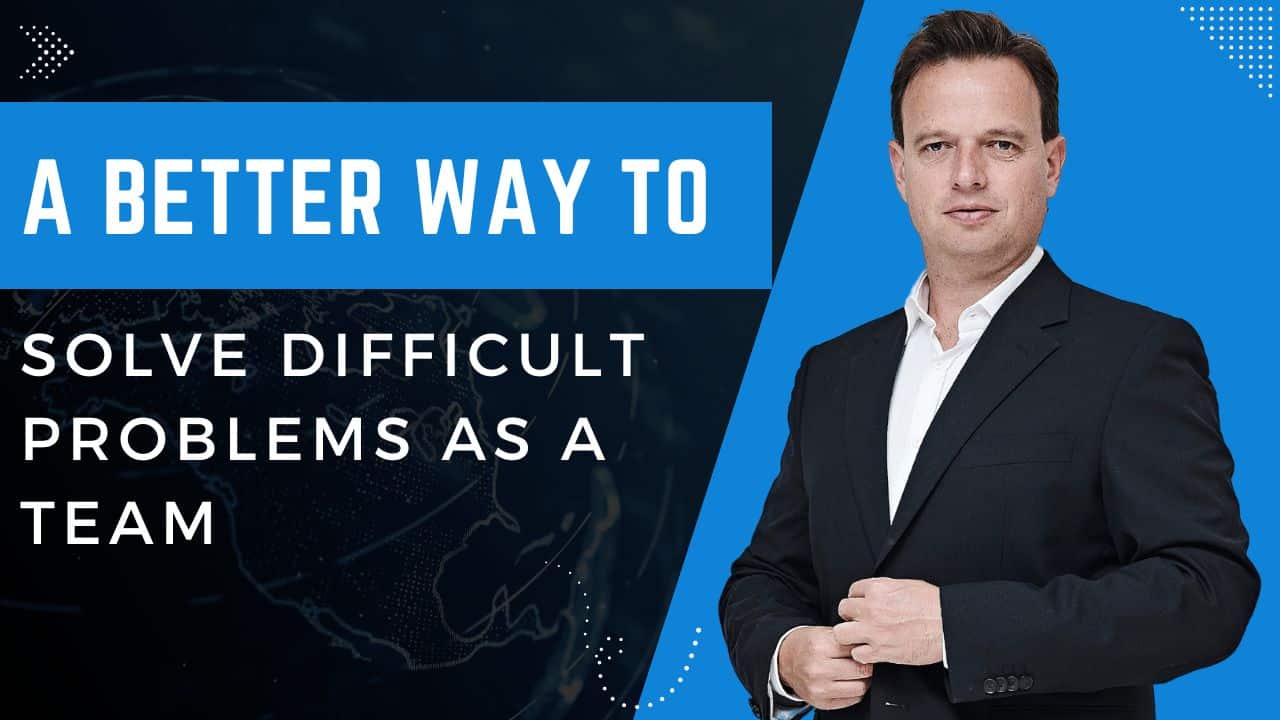Today, I will show you a better way to solve difficult problems.
Most teams solve problems by:
- Calling a meeting.
- Sitting around a table listening to 1 or 2 people dominate the conversation.
- Agreeing half-heartedly to an average solution.
- Repeating the process in 4 weeks when it doesn’t work.
But you’re better than everyone else because you know the power of a great workshop process.
The workshop I am showing you here is more fun and more inclusive, and will help a far superior solution emerge on the other end.
Here’s how it works.
Objective
To make breakthrough progress on a really difficult problem and avoid unstructured, time-consuming meetings that are full of talk but seldom arrive at a way forward.
Workshop Process
Step 1 - Agree Roles
There are three roles involved in this process.
All three roles must exist to work (I told you it would be fun!)
One person needs to be the Problem Owner.
They are the Chief Decision Maker for the problem.
They own the problem, are accountable for the solution's implementation, and leave with an action plan.
They will define the problem at the start, provide relevant background information and make decisions when asked to do so by the facilitator.
One person needs to be the Facilitator.
They are focused on getting through the process.
They keep the meeting on track, promote creativity and record the output on flip charts.
The rest of the Team contributes their ideas and expertise, follows the process and helps the Problem Owner attain the goal.
Once you agree on who will do what, you’re ready to start.
Step 2 - Run the Process

0-5 mins: Set the Problem Statement as a simple “How do I …?” question. The Team then asks the Problem Owner clarification questions so everyone understands the Background (e.g. the history and what’s been tried so far).
5-12 mins: Idea Generation is a rapid brainstorming activity for the Team only (i.e. the Problem Owner listens and the Facilitator writes). The goal in this phase is to come up with as many ideas and solutions as possible. No ideas are bad ideas. Everyone from the Team contributes as much as possible.
12-15 mins: Idea Selection involves the Problem Owner picking the 1-3 most promising ideas.
15-20 mins: The Team lists the Benefits & Concerns for each selected idea.
20-25 mins: Anyone can raise Critical Concerns and may eliminate an idea if they cannot be overcome.
TIP: There are rarely any critical concerns that are so critical that they rule out the solution. That won’t stop doomsayers from suggesting them, so ask, “Is that so critical and out of our control that we can’t overcome it with some carefully planned actions later on?”
Step 3 - Plan the Actions
25-30 mins: Finally, the Action Planning step is for everyone to contribute to and take ownership of what needs to be done, by whom, and by when to make the solution a reality.
Conclusion
The beauty of this process is that it manages resistance to change, as the steps encourage involvement, inclusion, and rapid progress.
While the Problem Owner is not obligated to pursue every shortlisted idea and every action proposed, the Problem Owner should know that an implicit or ‘psychological’ contract exists due to this process.
The value of future problem-solving exercises will likely be undermined if the Team feels their collective input has not been pursued.
Many problem-solving techniques take practice to perfect, and this one is no different.
It requires discipline from all the parties involved.
Keep trying, and don’t get discouraged because the results can be amazing!
That’s all for today.
See you next week.

